World of watches
IT’S STAR TIME
The Portugieser Sidérale Scafusia is another star up in the firmament of Haute Horlogerie radiating from IWC Schaffhausen. Ten years of intensive development work have gone into this impressive masterpiece. Its creators include external specialists from various disciplines, without whom this combination of solar and sidereal time would not have been possible. Find out more about the minds behind the Portugieser Sidérale Scafusia.
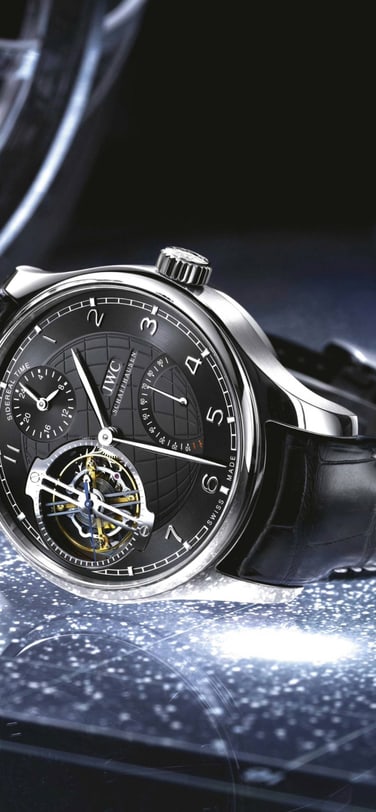
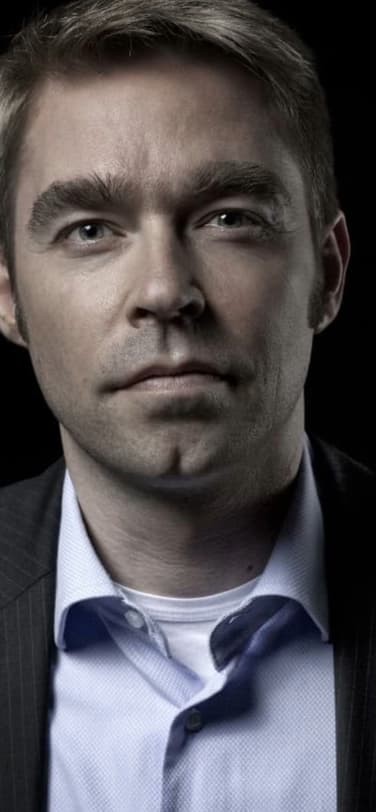
Stefan Ihnen
Trained as a watchmaker and qualified as a master craftsman, studied micro and precision engineering and obtained a postgraduate qualification in business management. A total of ten years as a watchmaker; a developer and designer at IWC since 2002. Appointed Head of Research and Development (R&D) Movements in 2006; since May 2010 Technical Director, responsible among other things for the “Sidérale project”.
The Portugieser Sidérale Scafusia is a “Gesamtkunstwerk”: a total artwork. What do you find most exciting about this watch?
Ihnen: The fascination of this timepiece lies in the number and combination of its complications. The constant-force tourbillon is the most obvious highlight. But squeezed into very little room on the back of the watch is a star chart together with displays for the horizon and geographical coordinates, solar time, sidereal time, sunrise and sunset times, as well as a display that shows daytime, nighttime and twilight. And we should also mention the fact that there’s a complete, integrated perpetual calendar behind the number of the day of the year.
Have there been moments you won’t forget?
Ihnen: Yes, quite a few. One particularly uplifting moment was when we held the first two fully assembled prototypes in our hands, and all the functions performed flawlessly. One of the watches had already rewarded our efforts by passing all the scheduled laboratory tests with flying colours. I’d like to take this opportunity to thank the whole team for their exceptional dedication, their unflagging enthusiasm for the project, and their unshakeable belief in the Portugieser Sidérale Scafusia.
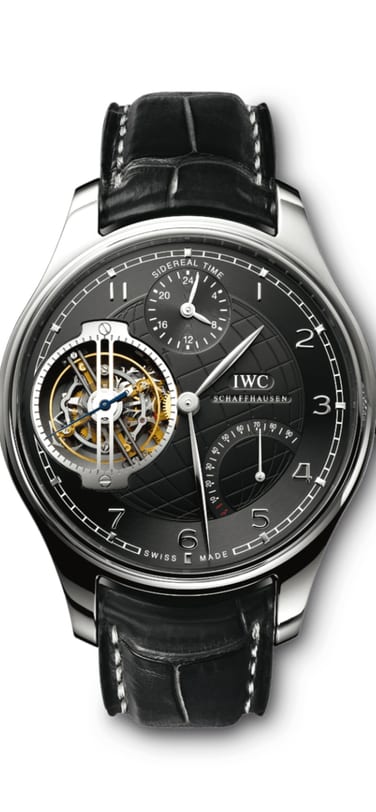
This project has involved a whole team of staff for ten years. What are the repercussions of such a long development time?
Ihnen: Yes, it’s true: some of our employees have been working on this watch from the start of their working lives, and it accounts for their entire career to date. The Portugieser Sidérale Scafusia was in its infancy when I joined IWC as a development engineer. Later I accompanied the project as Departmental Head, and am now in charge of it as Technical Director. As a result, we all have an unusually close relationship with the Portugieser Sidérale Scafusia. It’s like a little child that’s grown up and is about to fly the nest. This feels like rather a wrench, but there is also a sense of immense pride.
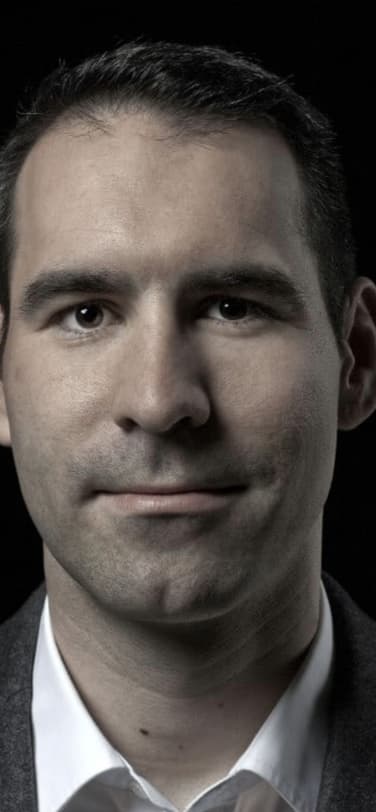
Thomas Gäumann
Trained as a watchmaker and then studied engineering in France, Germany and Switzerland, Executive MBA in Zurich. Project Manager and driving force behind the development of the 94900 calibre since 2005.
You are the Project Leader who turned Jean-François Mojon’s design to reality. How difficult was it for the developers, specialists and watchmakers to work together?
Gäumann: The cooperation was both challenging and extremely interesting for all involved. It called for a lot of tenacity from everyone, especially during the development of the technical innovations, when success was sometimes slow in coming. The key factor, though, was that everyone was enthusiastic about the product and spared no effort to make it a success. Without this exceptional dedication, the Portugieser Sidérale Scafusia might have never made it off the drawing board.
From prototype construction to procurement and the test stage, there were many obstacles to overcome. What are you especially proud of?
Gäumann: I’m certainly very pleased that the complex constant-force escapement functioned flawlessly, and practically from the start. Considering that the balance was developed from scratch, the Breguet spring has been optimized in our Timing Department, and parts of the escapement are precision-made to one-thousandth of a millimetre, I reckon that was no mean feat.
What distinguishes the movement of the Portugieser Sidérale Scafusia from other IWC movements?
Gäumann: Apart from the development time and the impressive dimensions of the movement, the calibre has other distinctive features that set it apart. The star chart and the horizon, together with the times of sunrise and sunset, are calculated and displayed as stipulated by the customer. This means the individual components have to be custom-made. Then they are individually assembled and adjusted. A watchmaking masterpiece does call for a little extra attention.
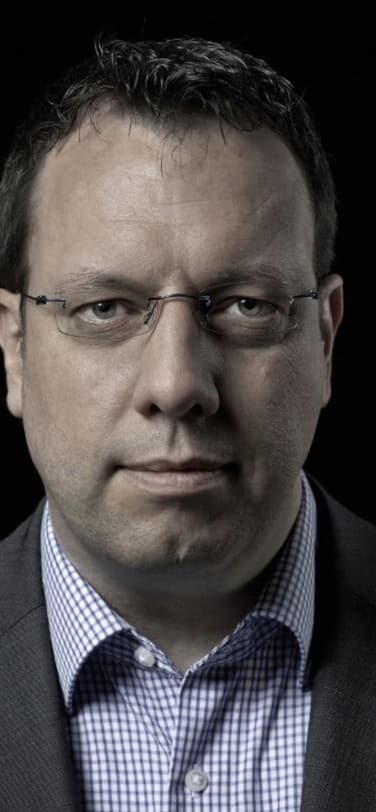
Mario Klein
Graduated in mechanical engineering; worked as a design engineer and project manager in the automotive industry. More than 50 registered patents. Joined IWCin 2006; responsible for several product groups. For the past three years he has been Product.
Mario Klein, when did you get involved as Product Manager?
Klein: My real work on the Portugieser Sidérale Scafusia began three years ago, when we started working on the design. The brief was clear: despite its numerous complications and functions, we wanted to create a classic, wearable, good-looking watch with recognizable Portugieser DNA. At 17.5 millimetres, the height of the watch is relatively modest. It’s water-resistant to 3 bar, has an appealing, uncluttered dial and, despite the giant tourbillon, is the soul of understatement. It only becomes clear that the watch is unique and functions as a personalized precision instrument when you view it from the back.
Every order crosses your desk, and every Portugieser Sidérale Scafusia is a one-off. There’s an individualized star chart and a personal choice of materials and colours. What does that mean for you?
Klein: Essentially the Portugieser Sidérale Scafusia breaks the mould. Every single watch is an individual project, with its own article number, specific components list, its own watchmaker and laborious logistics. There are specific holders of responsibility for every stage of the project. In addition to project supervision, I calculate – to the metre – the grid reference of the customer’s chosen location – say the Arc de Triomphe in Paris. Then I set the sidereal time in line with the chart. By the way, the chart measures a proud 28 millimeters and is made in-house as a complex, four-colour print of sensational quality.
Functions, quality, design… is everything about the Portugieser Sidérale Scafusia more or less unique?
Klein: Only the very best is good enough. There’s no room for compromise with the Portugieser Sidérale Scafusia. Every single one of the countless details has to be flawless, but the composition as a whole must be perfect, too. The owner may wear the watch for a few years, but he will never stop discovering surprising new things about it. From the re-engineered folding clasp to the battery-operated watch winder, everything focuses on quality, functionality and user-friendliness. When you hold this watch in your hand, you literally feel the passion that has gone into its creation.
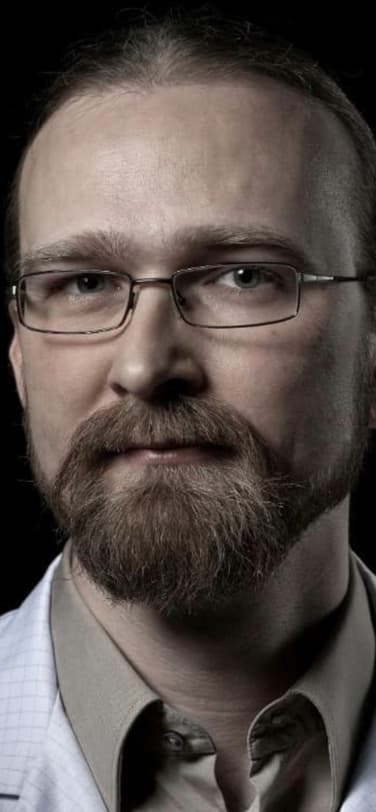
Stefan Brass
After school-leaving exams, he qualified as a watchmaker and master craftsman; with IWC since 1998. Works in the specialties department, assembling among other things the Grande Complication and the minute repeater. At IWC he will work on the Portugieser Sidérale Scafusia.
Stefan Brass, a rather special assignment awaits you in the Portugieser Sidérale Scafusia. What attracts you to the project?
Brass: The complexity of the mechanics is very impressive but the thing that really spurs me on is the idea of combining the astronomical displays and reproducing them precisely on the watch. Here at IWC, we already have an incredibly precise moon phase display. By contrast, the Portugieser Sidérale Scafusia combines a star chart with displays for the horizon, sidereal time, sunrise, sunset and twilight. I am responsible for the watch as a whole. Each one is tailor-made to the customer’s specifications.
What skills qualified you for this special assignment?
Brass: As a Master Watchmaker, I have many years of watchmaking experience under my belt. I’m very familiar with complications like the minute repeater and perpetual calendar and I’ve been working on the tourbillon for some time now. My work on the Grande Complication has familiarized me with the autonomous approach. In principle, it means that the same watchmaker is responsible for assembling the watch from start to finish. At the same time, my basic knowledge of astronomy is useful when I’m working on the settings and checking the functions of the Portugieser Sidérale Scafusia.
Astronomy is one of your hobbies, too. What attracts you to it?
Brass: I’ve been interested by the physical movements of the stars and the universe in general since I was a young lad. I’m totally fascinated by the immeasurable forces and distances in the cosmos, and the countless phenomena to be found there such as pulsars, novas and black holes. Something else that impresses me is the technology available to astrophysicists for observation, which is constantly developing and enabling them to reach further. One aspect of the work on the Portugieser Sidérale Scafusia that thrills me is miniaturizing the overwhelming scale of the universe.
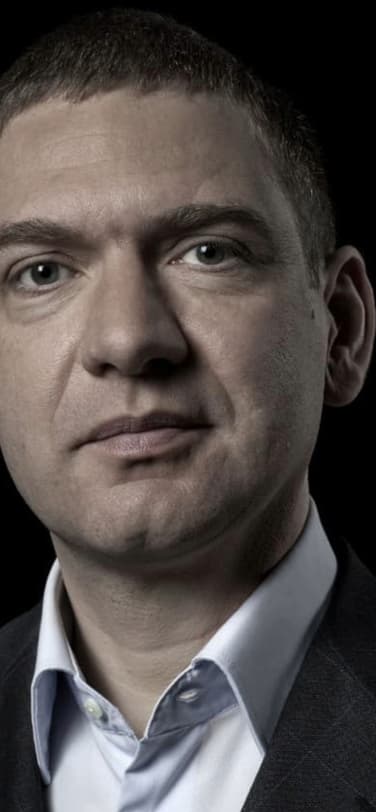
Jean-François Mojon
Graduated in engineering and microtechnology, followed by postgraduate degrees in business and quality management. With IWC from 1995 to 2005, latterly as Head of Development. Developed the concept of the Portugieser Sidérale Scafusia and designed the movement.
It took you around ten years to get the Portugieser Sidérale Scafusia ready for series production. Would you call it a success story?
Mojon: It was certainly an adventure! It was like climbing a high mountain. There were times when we surged ahead. There were also times when it took a lot of effort to solve the problems that arose. But it was precisely these challenges that encouraged us to turn the idea of the Portugieser Sidérale Scafusia into reality. Ultimately, it was a success story, full of emotion, and we succeeded in conquering the mountain peak.
At the heart of the watch is the patented constant-force tourbillon. What is so unusual about this complication?
Mojon: It’s obvious at first glance. The constant-force mechanism makes the seconds hand jump once a second. In quiet surroundings, these second jumps are audible. Unlike conventional mechanical wristwatches, the constant-force mechanism prevents the wheel train from exerting a direct influence on the balance and spring. All the irregularities (fluctuations in the torque of the mainspring) due to the spring barrel or train are therefore eliminated. The working principle is simple: a constant-force spring is fitted between the escapement and the balance and spring. This constant-force spring is pre-tensioned after each second, and then transfers this stored energy to the balance and spring. This periodic release of energy ensures that the amplitude of the balance and spring remains constant and produces a precise and constant watch rate.
You are a developer specializing in complications. The Portugieser Sidérale Scafusia combines solar and sidereal time. Could this ever be surpassed?
Mojon: There is always a higher peak waiting to be conquered. Watch designers and watchmakers are always good for a surprise, so let’s wait and see.
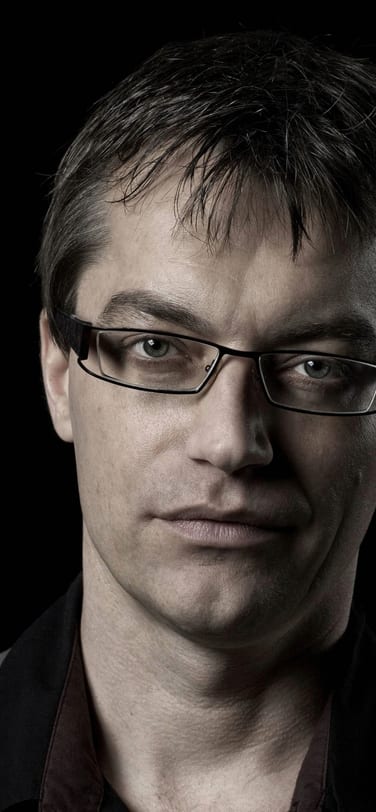
Professor Ben Moore
Came to the University of Zurich in 2002 to set up the cosmology and astrophysics research group. Specializes among other things in the origin, development and structure of the universe, dark materials and energy, and the formation of planetary systems. He advises the Portugieser Sidérale Scafusia team on all astronomy-related issues.
Professor Moore, you probably aren’t approached by a watch manufacturer every day? What made you to agree to work with IWC?
Moore: I’m often asked, “What good is your research in astrophysics and cosmology?” I usually answer that the value of pure research cannot be understated in terms of the longer-term benefits to mankind. Entire economies flourish through discoveries made from investing in fundamental research. But I also find it fascinating to be able to assist a very traditional and renowned Swiss company with a more immediate product using some of the skills that we have in our profession. I also enjoy new challenges and it has been very stimulating working with the IWC design and engineering team.
What is it specifically about this watch that bears your signature?
Moore: I enjoy the task of explaining complex phenomenon in our universe to the general public, to convey how vast and beautiful the universe is and to show how insignificant we are in the grand scheme of things. This IWC and its complex sidereal mechanism and accurate star charts allow the wearer to appreciate and understand their place in our galaxy – an extraordinary accomplishment for a mechanical device that you can wear on your wrist. I am happy to have played a small role in its design and construction, and in particular of the customized star charts.
Each watch features a star chart specified by the customer, which is based on his location and is therefore unique. What location would you choose and why?
Moore: During my career as an astrophysicist I have worked in many countries and I have visited many cities throughout the world, but I consider Zurich as my home and I can’t imagine living anywhere else. I would therefore choose 46°32′51″N 7°58′45″E, the location of the Sphinx scientific station and astronomical observatory on the Jungfraujoch mountain. It’s a very special and inspiring location with spectacular panoramic views across the Alps and glaciers.